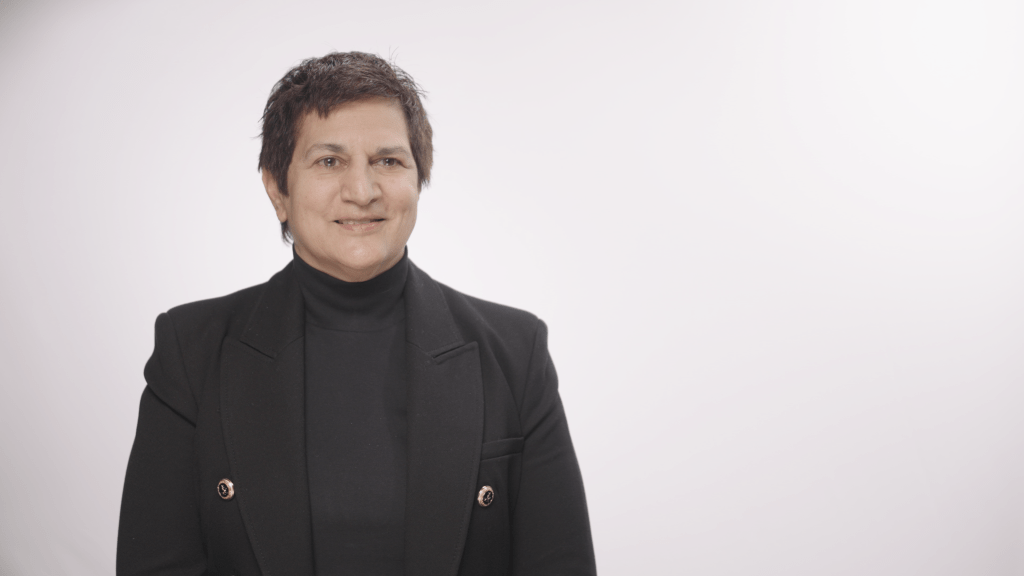HiMama Founder Ron Spreeuwenberg On Winning as a Business and Driving Positive Social Change: #IMadeThis
Published August 29, 2019 • 9 Min Read
#IMadeThis – Innovators, entrepreneurs, and idealists
Ever wondered how successful entrepreneurs turn their dreams into reality? What drives them to push the envelope, create change and advance their industries? Canadian small business owners share how they transformed their ideas, goals and passions into reality.
HiMama was built as an app to solve parent-childcare communication challenges. Today, the company’s mission is to empower early childhood educators through affordable tools that enable them to improve development outcomes for children while educating parents about the importance of their work.

Q: What Motivated You to Become an Entrepreneur?
Spreeuwenberg: Previous to HiMama I worked in consulting — but I always had an entrepreneurial itch. I went to the University of Waterloo and had a housemate whose brother started a business — his stories were an inspiration to me. I reached a certain point in my career where I had to make a decision: Was I going to be a consultant as my career, or was I going to give this entrepreneurship lifestyle a go?
I just quit my job — which I don’t recommend to anyone — to fulfill my entrepreneurial calling. My mom was baffled by the move.
I didn’t know what business opportunity I would pursue and had to figure it out.
Q: How Did You Come up with the Idea for HiMama?
Spreeuwenberg: So many parents use childcare services — especially in Canada, as often both parents are working. Through conversations with friends, I realized that their experience with childcare programs was not really great in terms of getting updates and information about their kids’ well-being. Pen and paper reports were hard to read, and they certainly weren’t engaging or timely. Maybe they would get a generic newsletter, at best. That’s when the light bulb went off — that there could be a problem to be solved here.
Q: What Is the Best Advice You Ever Received as You Started Your Business?
Spreeuwenberg: Early on — way before you do anything else — just go talk to your prospective customers. Before you build a product or create a service, when you have a feeling that there is a problem that you may be able to create a solution for, talk to people. That’s what I did — I picked up the phone and talked to childcare programs. I did 50 interviews with childcare providers where I asked about their challenges around documentation and communicating to parents. This legwork showed me it was worth taking that next step.
Q: Who Are Some of the People Who Supported You on Your Journey?
Spreeuwenberg: The biggest one by far is my wife. She was willing to give me the opportunity to take three years to make something work. There were years I had next to no income, plus I was sacrificing the opportunity costs of giving up a salary in consulting. She was supportive not only from a financial perspective, but she also provided emotional support as I was sitting by myself in my home office, with no customers, trying to figure out what I was doing. She kept me motivated to keep working at it.
I am also part of a peer-to-peer network called Peerscale. It’s great because I’m part of a roundtable of about 10 members made up of founders and CEOs of tech startup companies. We learn from each other. We meet once a month to talk about challenges, share experiences, etc.
Q: Did You Have Moments When You Thought This Wasn’t Going to Work?
Spreeuwenberg: I didn’t have one point where things were a complete disaster. We have been lucky enough to be largely doing what we had been planning to do. Part of the reason is that we were pretty thoughtful with meeting with prospective customers and talking to childcare owner/operators, which gave me the confidence to say “There is a problem to solve here.”
But it takes patience. There were years spent with just me and my co-founder/ CTO, making little money while our customer base was small. I didn’t necessarily think, “This could be a failure,” but it was hard to envision how we were going to go from there to a multi-million dollar business.
Q: So How Did You Get From There to Here?
Spreeuwenberg: While we started by creating an app for parents — where they could add photos and memories of their children — we quickly realized that the better route to go was through the childcare programs. Once they started using the app, it became part of their operations as a business, and that’s where things really started to take off. Every time we added a childcare program, we added 100 or more parents who also became engaged users of the app. The dual value to both the childcare programs and the families provided us with the recipe for growth.
Q: With Cash Tight for a Few Years, How Did You Come to Finance and Fuel the Growth of HiMama?
Spreeuwenberg: We put some of our own money into the business early on. We bootstrapped for a long time and had some funding to help us out — a credit line from RBC, which was very helpful. We just raised institutional money in 2019 – six years from the point of starting — from a VC fund in Toronto called Round 13 Capital.
We also formed a board right from the beginning. In addition to my co-founder, there are two other founding members of HiMama who sit on the board. With our funding from Round 13 Capital, we added Bruce Croxon, a former Dragon’s Den member. Our board has been a great sounding board for us from the beginning.
Q: What Advice Would You Give Someone Who Is Starting a Business?
Spreeuwenberg: Early on, have the conversations with your prospective buyers or users.
But the biggest thing of all is to just do it — just do stuff. Regardless of what it is you’re doing, you’re making progress. We have learned a lot about child education and opportunities where we could provide support that we didn’t know existed when we started.
By getting out there and talking to people and doing the research, you keep moving things forward. You can’t predict what’s going to happen, but if you don’t start doing things … well that’s the quickest way to fail.
Plus, if you’re going to do something entrepreneurial, make sure you do something you’re passionate about. It could be the industry, culture, or type of company — but as long as it’s something you’re passionate about.
One of the most fulfilling things for me is having an authentic purpose to my work, and having a genuine team of people who really care about customers and the social impact we have on our customers and community. It’s really rewarding to be able to go into work every day doing something you love.
Q: Why Was B Corporation Certification Important to You?
Spreeuwenberg: Becoming a Certified B Corporation was just putting that third party validation behind what we were already doing as a company. I am really passionate about social business and social enterprises, and feel doing good as a business and for the good for society should go hand in hand. We were already doing that and came upon B Corp Certification. I thought it would really benefit us, both to differentiate us from other companies in the market, but more than that, to challenge ourselves on where we could be better.
The B Corp assessment gives you scores across different criteria such as community, customers, environment, employees and governance, and tells you where you can improve. And because you need to renew the certification every two years, you need to stay true to your social goals.
Q: How Do You Strike a Balance Between Being a High-performance Tech Startup with a Social Enterprise That Is Doing Good?
Spreeuwenberg: Our core values are:
-
Be a good person.
-
Work hard and win.
-
Own positive change.
An underlying component of the core values is our mission-driven philosophy as a company to make a positive social impact on the people and communities we serve.
The balance comes in through values that include both winning and owning positive change — because the more we grow as a business, the wider the scope will be of our positive impact in early childhood education, and with families.
We are also passionate about owning positive change because there is somewhat of a leadership gap in early childhood education. We feel we can help close that gap as thought leaders in the field; for example, I host a weekly podcast series called “The Preschool Podcast,” and we celebrate the amazing work of early childhood educators by hosting the “Early Childhood Educator of the Year Awards.” We also employ several Early Childhood Educators as we feel it is important for us to stay connected to the people that we serve, and ensure we understand the problems and challenges that they face day-to-day.
Q: How Do You Find and Retain the Right Staff to Support Your Mission and Values?
Spreeuwenberg: When hiring new people to the company, we are of course looking for people who will live and breathe our core values. That means we’re looking for characteristics like authenticity, humility, and empathy, in addition to being competitive, hardworking, and results-oriented. It’s a powerful combination to have both sides of that equation.
I find so many people — especially young people — want to work for a company that they can go to every day knowing they are doing something to improve the lives of others. HiMama is that.
Q: So What’s next for HiMama?
Spreeuwenberg: We have just touched the tip of the iceberg. When we started, it was really about parent-teacher communications but since then we have really become passionate about early childhood education. There are so many opportunities for us to support the learning and development of young children, that’s where we will continue to spend a lot of our time — observing children’s development, creating portfolios for reflection, supporting curriculum and lesson planning. There so many things that we can do. It’s a great feeling to know we can grow our business by supporting the development of young children in their foundational years.
This article is intended as general information only and is not to be relied upon as constituting legal, financial or other professional advice. A professional advisor should be consulted regarding your specific situation. Information presented is believed to be factual and up-to-date but we do not guarantee its accuracy and it should not be regarded as a complete analysis of the subjects discussed. All expressions of opinion reflect the judgment of the authors as of the date of publication and are subject to change. No endorsement of any third parties or their advice, opinions, information, products or services is expressly given or implied by Royal Bank of Canada or any of its affiliates.
Share This Article





